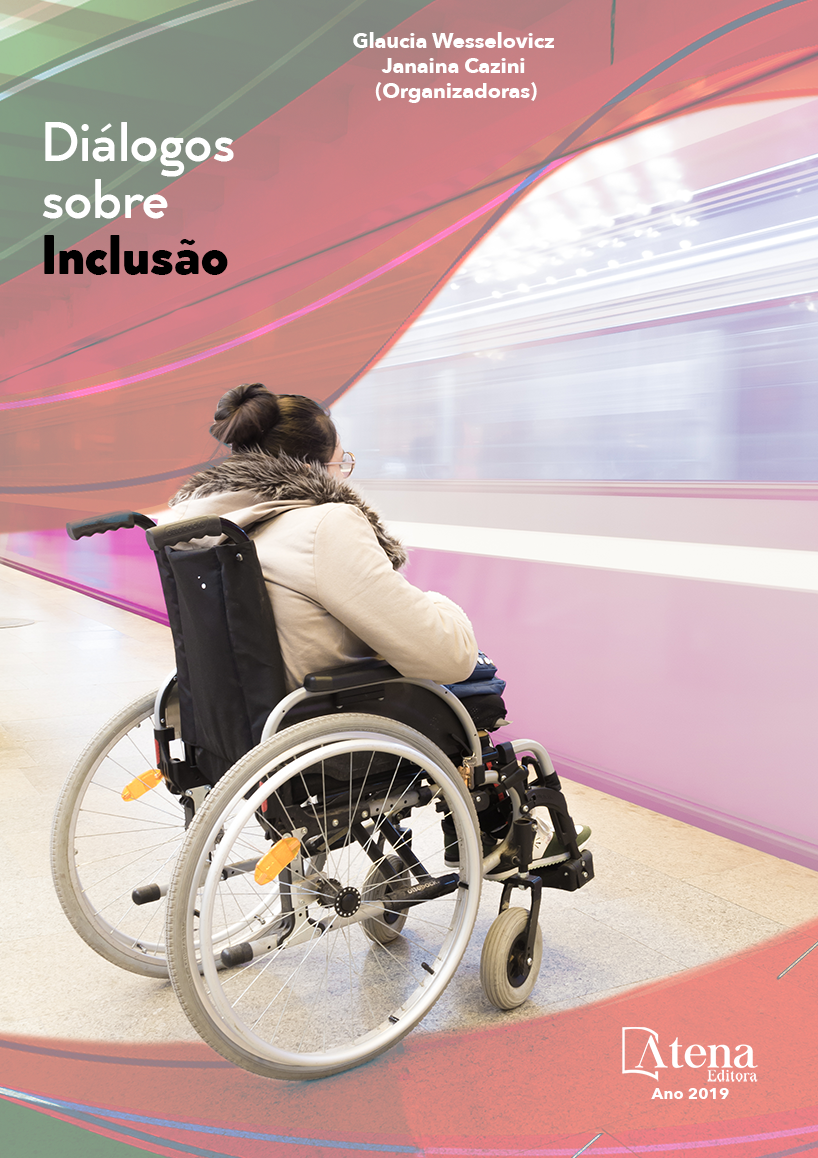
JOGOS COOPERATIVOS DE INCLUSÃO BILÍNGUE: ESTRATÉGIAS DE ACESSIBILIDADE COMUNICACIONAL NA ESCOLA DE ENSINO REGULAR PARA ALUNOS COM SURDEZ
Essa pesquisa foi realizada
em uma Escola de Fortaleza e teve como
objetivos conhecer os aspectos sócioafetivo,
socioambiental e sócio-cognitivo com as
Atividades Físicas Inclusivas – AFI, através
dos jogos cooperativos de inclusão bilíngue
de uma aluna de iniciais MF de13 anos do 5º
ano e analisar como acontece à socialização
com seus pares. O estudo foi realizado no
período de fevereiro a dezembro de 2015
com uma aluna que frequenta o AEE. Para
fundamentarmos a investigação utilizamos os
estudos de FERREIRA (2011), SASSAKI (2005)
e VYGOTSKY (1993). Como instrumentos
de coleta de dados utilizamos a análise
documental e observação da aluna no AEE
da SRM. Os resultados apontaram que nesse
período notou-se que sua oralidade era falha,
MF não sentia-se a vontade no atendimento,
decidiu-se fazer o atendimento indireto na
sala de aula comum, 50mim duas vezes na
semana, com o currículo de LIBRAS através
de jogos cooperativos de inclusão: contação de
história, dominó humano, conversação. A partir
desse processo aproximadamente um mês
de intervenção notou-se um grande avanço
na afetividade e socialização de MF através
da comunicação bilíngue com seus pares e
elevação da autoestima. Antes da intervenção
MF tinha grandes dificuldades em compreender
palavras simples como CASA-/\ em Português/
Libras-L2. Dessa forma decidiu-se favorecer
a inclusão escolar nas dimensões Atitudinal,
Comunicacional, Instrumental e Metodológica
no uso de jogos cooperativos de inclusão e
concluiu-se que essa metodologia nos propiciou
os resultados satisfatórios nos aspectos em
referência
JOGOS COOPERATIVOS DE INCLUSÃO BILÍNGUE: ESTRATÉGIAS DE ACESSIBILIDADE COMUNICACIONAL NA ESCOLA DE ENSINO REGULAR PARA ALUNOS COM SURDEZ
-
DOI: 10.22533/at.ed.62019280513
-
Palavras-chave: Jogos cooperativos de inclusão, Surdez, Aspectos sócioafetivo, sócioambiental e sócio-cognitivo.
-
Keywords: Cooperative games of inclusion, Deafness, Socio-affective aspects, social-environmental and socio-cognitive.
-
Abstract:
This research was carried out in
a School of Fortaleza and had as objectives to
know the socio-affective, socioenvironmental
and socio-cognitive aspects with the Inclusive
Physical Activities - AFI, through cooperative
games of bilingual inclusion of a 13-year-old MF
Diálogos sobre Inclusão Capítulo 13 123
student of the 5th year and analyze how socialization happens with peers. The study
was conducted in the period from February to December 2015 with a student attending
the ESA. In order to base the research, we used the studies of FERREIRA (2011),
SASSAKI (2005) and VYGOTSKY (1993). As data collection instruments we used the
documentary analysis and observation of the student in the ESM of SRM. The results
indicated that in this period it was noticed that their orality was flawed, MF did not
feel comfortable in attendance, it was decided to perform the indirect attendance in
the common classroom, 50mim twice a week, with the curriculum of LIBRAS through
cooperative games of inclusion: storytelling, human domino, conversation. From this
process approximately one month of intervention a great advance in the affectivity and
socialization of MF through bilingual communication with its peers and elevated selfesteem
was noticed. Before the intervention MF had great difficulties in understanding
simple words like CASA - / \ in Portuguese / Libras-L2. Thus, it was decided to favor
school inclusion in the Attitudinal, Communicational, Instrumental and Methodological
dimensions in the use of cooperative games of inclusion and it was concluded that this
methodology gave us satisfactory results in the aspects in reference.
-
Número de páginas: 15
- Raquel Araújo Pompeu
- Querem Hapuque Monteiro Alves Muniz
- Robéria Vieira Barreto Gomes
- MARIA DE LOURDES LEITE PAIVA


